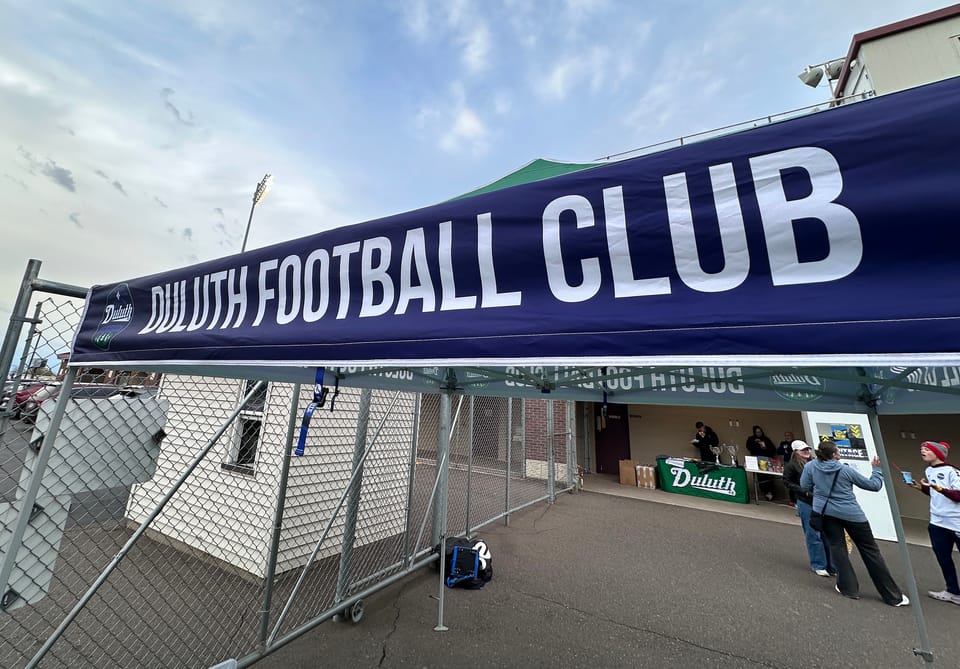The Easter eggs: The good stuff the Legislature passed you may not have heard about
The Legislature approved a measure in the education funding bill allowing a school board to renew a 10-year levy once if the amount is the same.

By J. Patrick Coolican, Minnesota Reformer
For months in 2022, a few county boards were forced to deal with unruly crowds of right-wing activists who pressured the elected officials to switch to hand-counting paper ballots.
Doing so would have been an unwieldy nightmare for the counties — hand counting is more expensive and less accurate than machine counts, and the grueling process would take days before a winner could be even unofficially declared.
Now counties have an answer: Switching to hand counting ballots would be breaking the law. A provision in a budget bill (HF1830) the Legislature passed and Gov. Tim Walz signed earlier this month has made clear that once a county adopts an electronic voting system (which is nearly all of them), they can’t go back to hand counting.
You’re welcome, county commissioners.
That’s just one of the small but consequential changes that lawmakers enacted during the momentous 2023 legislative session.
The session was so extraordinary that some significant legislation — like ending the absurd debate about hand counting ballots — passed without much attention from the press or public or even the legislators themselves (though in some cases that may have been intentional).
So here’s a tally — by no means comprehensive — of provisions that got lost in all the hoopla. Some of the laws are truly significant, while others are fun and quirky. Some of these new laws have received a bit of press — especially as reporters have dug into mammoth budget bills in the past few weeks — but we still want to highlight these provisions that could have an impact on Minnesota in the coming years.
We call them Easter eggs. Some may be wrapped in foil and oozing with a sugary cream filling. Others may be rotten. We’ll know soon enough.
The renter’s credit is now an income tax credit
Minnesota is among a handful of states that gives renters a tax refund, but the deadline for filing for it is in August, and a lot of renters are unaware of it and never claim it. That will change thanks to legislation from Rep. Nathan Coulter, DFL-Bloomington, who ended the renters’ credit and changed it to an income tax credit filed with your tax return.
Budget analysts expect far more renters will get the credit, costing the state $379 million during the next two years — most of it going right into the pockets of beleaguered Minnesota renters.
Be on the shroom task force
Rep. Andy Smith’s bill creates a Psychedelic Medicine Task Force, which will advise the Legislature on the “legal, medical and policy issues associated with the legalization of psychedelic medicine.” That’s psilocybin mushrooms, LSD and MDMA, which have shown promise in treating a range of mental illnesses in peer-reviewed studies. The provision received bipartisan support, and it’s even funded with about $500,000 during the next two years. H/t Marijuana Moment.
Payday lenders get the cold shoulder
Minnesota capped payday lending rates at 36%, which if nothing else will likely halt the growth of the industry here. Minnesota is now among 18 other states that cap interest at 36% or lower. The legislation aims to prevent people from getting trapped on a debt treadmill, which is often what happens to borrowers who use payday loans.
New highway project? You must consider climate change
The transportation sector is the top — or second biggest, depending on how you do the math — emitter of greenhouse gases in Minnesota. The Legislature’s commitment to reducing our carbon footprint now extends to decision-making about highways. The Minnesota Department of Transportation must now consider the climate impacts before it embarks on a highway expansion.
The fancy fixture and the flag and seal
One of the most striking features of our beautiful state Capitol is what’s called the Capitol Electrolier, which is the fancy name for the light fixture inside the dome. By law, it was to be lit on the first day of session, statehood day and Halloween (?!) . Now, it will be lit the entire legislative session. Bill author Rep. Mike Freiberg, DFL-Golden Valley, says it was a suggestion of nonpartisan staff. The staff work crazy hours and aren’t getting rich doing it, so giving them an inspiring artifact to look up at seems the least Minnesotans could do for them.
Freiberg is also a key player in the effort — which has received far more attention but is still worth mentioning — to replace the state flag and seal. As he said on MPR recently, “It depicts basically a white farmer displacing an Indigenous person riding on horseback. And that was very deliberate by the designers of the seal to depict, you know, the white people basically eliminating Native Americans from Minnesota.” A 13-member commission will replace the flag and seal, and the new flag will go up on statehood day, May 11, 2024. H/t MinnPost.
It’s a bad flag. Photo courtesy of the Office of Secretary of State.
No more artificially inflated gas
Last year, GOP-nominee for governor Scott Jensen ran on a way to reduce gas prices by eliminating a requirement that retailers sell gas for at least 8 cents per gallon more than what they bought it for. The Legislature enacted the law in 2001 — when the price of gas was less than $2 per gallon! — as a way to shield smaller gas retailers from corporate behemoths like Walmart that could sell gas for less than cost. The price floor is now gone, which may help offset a coming gas tax increase tied to inflation that will pay for transportation improvements.
A new state agency
For years policymakers have discussed reorganizing the leviathan of state government: The Department of Human Services, which employs more than 6,000 workers and spends billions every year, engages in some of the most difficult government work, like managing the Minnesota Sex Offender Program, providing health care and services to people who need assistance and overseeing child protection.
Now lawmakers — at the urging of Walz — have created a new agency that aims to lighten the DHS portfolio while giving focus to a key priority: children and families. The Department of Children, Youth, and Families will be an important institution for Walz’s stated aim to make Minnesota the best state for families and children.
It’s another illustration of how busy this legislative session was that a generational reorganization of state government has received so little attention — or scrutiny.
Malaika Eban, executive director of the Legal Rights Center, said the new agency could transform how Minnesota gets kids back on the right track: “We’re particularly excited about what this means for juvenile justice, and the opportunity to use a youth development, family and child-centered approach as opposed to corrections or public safety.”
A basket of criminal justice Easter eggs to make the system less punitive and more effective
Reformer reporter Deena Winter has written extensively about how people in prison can get time off if they complete programming like drug rehab and mental health services, as well as a retroactive five-year cap on probation and other forms of supervision. But a number of other criminal justice provisions received less coverage.
To achieve fairer sentencing, the Legislature expanded the Sentencing Guidelines Commission, which is an important body that sets presumptive sentences for felonies. The commission’s sentences are automatically instituted unless the Legislature acts to reverse them. This year, the Legislature gave the governor two additional appointments to the commission: One must be a formerly incarcerated person, and the other must provide treatment or rehabilitative services.
The drive to allow qualified people without immigration status to earn a driver’s license received lots of attention. But Sen. Jen McEwan, DFL-Duluth, and Rep. Dave Pinto, DFL-St. Paul, helped pass a bill that creates a free temporary driver’s license to recently released prisoners whose license is suspended or revoked for traffic violations prior to incarceration. As Anna Odegaard, director of Minnesota Asset Building Coalition, explained in an email, it’s called a Reintegration Driver’s License.
The temporary driver’s license upon release — which can convert to a regular license under certain conditions — will give the formerly incarcerated a better shot at getting a job and meeting other conditions of their supervised release.
DFL lawmakers made reintegration after prison a priority this session as a way to reduce recidivism, which is why they also made prison phone calls free. The idea is to help prisoners stay connected to family and community, which should make recidivism less likely.
Free. Photo by John Moore/Getty Images.
If you deserve a pardon, you can get one with a 2-1 vote of the Pardon Board, composed of the governor, attorney general and chief justice of the Minnesota Supreme Court. Previously, a unanimous vote was required.
To keep people out of the criminal justice system in the first place, lawmakers decriminalized drug paraphernalia, even if it has drug residue on it. The Legislature also legalized safe injection sites, which are designed to prevent overdose deaths and the spread of disease by giving people a safe, supervised space to use illegal drugs.
Finally, as Racket reported recently, the Legislature also removed some anachronistic prohibitions against sodomy, fornication and adultery, proving that the delete button can be a useful tool of lawmakers.
No more coerced debt
A provision in a major commerce bill prevents survivors of domestic violence from being saddled with debt they did not voluntarily incur, in cases in which they were coerced into taking on debt, or debt was incurred as a result of an abuser using their identity without their permission.
Ron Elwood, an attorney with the Legal Services Advocacy Project, said via email the victims wind up “owing money for debt they neither wanted nor from which they benefitted, but also they find themselves with a poor credit report.”
The new law, Elwood said, defines coerced debt and makes it an illegal act to force someone into it; gives the survivor a legal avenue out of the debt; and allows a creditor to transfer the coerced debt to the perpetrator.
No more onerous school levy campaigns
School boards have long sought the ability to renew a 10-year operating property tax levy with a vote of a school board rather than a referendum.
“As any school board member, principal, superintendent, or involved parent will tell you, the effort that goes into those referenda is massive and depleting,” said Sen. Matt Klein, DFL-Mendota Heights.
The Legislature approved a measure in the education funding bill allowing a school board to renew a 10-year levy once if the amount is the same.
If you oppose a levy, you can always run for school board.
You’re confirmed, commissioner!
Senate Republicans in the majority during Walz’s first term took a page from the Beltway playbook when they wouldn’t give the vast majority of his commissioners an up-or-down confirmation vote. Unlike the federal government, however, the commissioners can work in the job before confirmation. In a few cases, Republicans sacked commissioners when they were particularly irked at a Walz policy. In one case, a commissioner resigned before Republicans had the chance.
It’s a recipe for bad government — governors unable to recruit top candidates who don’t want to live in political limbo if the other party controls the Senate, as well as unconfirmed commissioners struggling to carry out the governor’s agenda while always looking over their shoulder.
A new law will require the Senate to act within 60 legislative days. If they don’t act, the nominee is automatically confirmed. H/t MinnPost.
Help for folks with disabilities during winter
People in wheelchairs already struggle to get around on transit because of service cuts and not enough bus space dedicated for wheelchair riders. The past winter’s brutal ice and snow season worsened the situation.
So it’s welcome news that a clause in the new transportation law requires the Met Council operators to train their drivers to board and disembark riders with mobility issues in snow and ice. H/t Jiahong Pan.
“Get Covered” hospital screening bill
The health and human services budget law includes a provision requiring nonprofit hospitals to screen patients for eligibility for public health care programs and “charity care” before they begin the usual medical debt rigamarole.
In other words, they have to figure out if the patient might be eligible for government programs or free care before they can send debt to collections, set up a payment plan or withhold some health care to the patient because of medical debt.
If that last one sounds familiar, that’s probably because The New York Times published an investigative article about how Minneapolis-based nonprofit Allina Health had withheld care from patients with unpaid medical bills. They paused the practice after the article ran. H/t Odegaard.
Free college? Yes, for many
The free college provision of the Legislature’s higher education budget received a fair amount of coverage, but it’s worth revisiting because in any other legislative session, free college would have seemed like a huge win. In short, if your family earns less than $80,000 per year, which is about the Minnesota median family income, you get free tuition at the state’s public colleges and universities. In the face of exploding student debt and declining enrollment due to demographics and rising skepticism about whether college is worth it, this benefits both students and the colleges. Undocumented people are eligible, too.
“So many people I’ve spoken to have no idea this bill was introduced, let alone passed, and I’d love for it to be common knowledge to Minnesotans,” Andrea Omernik said in an email. She’s a 23-year old Minneapolis resident who graduated from the Saint Paul Conservatory for Performing Artists but will now pursue urban studies at the University of Minnesota.
She put off going to college after high school because she didn’t want a bunch of debt. “I have decided to pursue my bachelor’s degree after several years working full time, and I now qualify as an independent for financial aid purposes — and make well under $80,000 a year as a service worker — so this bill makes a tremendous impact on the feasibility of my decision. I cried a little when I found out about it!”
And now we’re all crying a little, Andrea.
This story would not have been possible without help from Reformer reporters and many great suggestions from Reformer readers.
Minnesota Reformer is part of States Newsroom, a network of news bureaus supported by grants and a coalition of donors as a 501c(3) public charity. Minnesota Reformer maintains editorial independence. Contact Editor Patrick Coolican for questions: info@minnesotareformer.com. Follow Minnesota Reformer on Facebook and Twitter.



